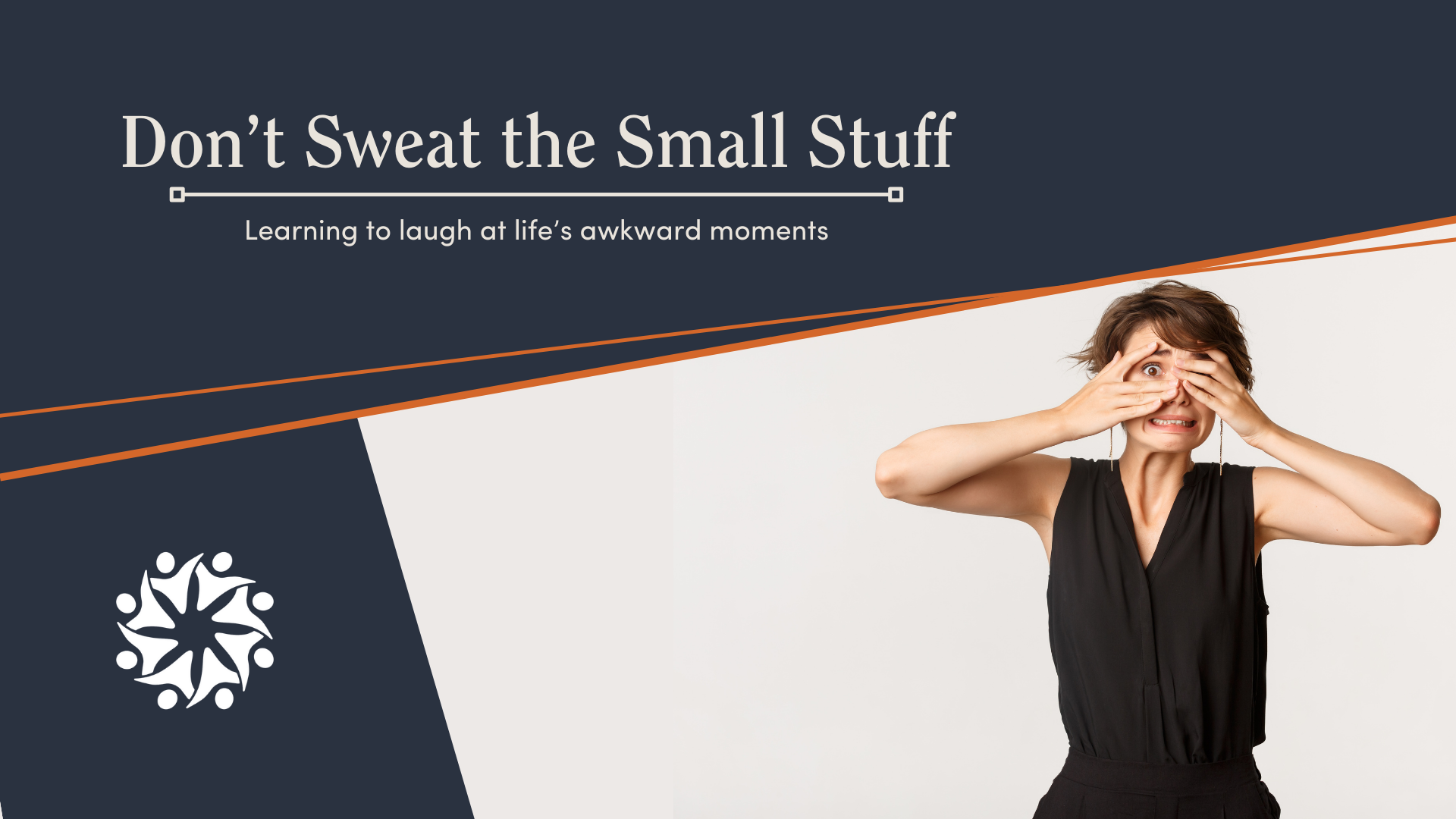Don’t Sweat the Small Stuff
Have you ever said or done something on accident that left you feeling embarrassed?
If you're human, I imagine you can answer "yes" to that question.
Well, today, I wanted to take a second to talk about a time, recently, where something like that happened to me.
Let's set the scene
On a recent episode of Taking Control: The ADHD Podcast, Pete Wright and I had the honor to sit down and talk with Dr. Tamara Rosier.
At the beginning of our conversation, I started by mentioning Dr. Rosier’s fantastic book, Your Brain's Not Broken.
At least, that's what I meant to say.
Instead, I said the book was called Your Brain's Broken. Both Pete and Tamara caught it right away and made sure to correct me.
I apologized for the flub and I laughed, as did Pete, Dr. Rosier, and—I found out later—so did all our Patreon members watching the podcast recording happening live.
Dr. Rosier even took a second to let me know I wasn't alone. She shared that even she has made the same mistake in forgetting that very important three-letter word, Not.
After that, we continued on with what ended up being a fantastic conversation and interview.
What if...
Now, let's go back and see what might have been if I hadn't been able to laugh at the moment where I misspoke.
Instead, maybe I might have felt horribly embarrassed and began to apologize profusely, getting more and more upset the more I apologized.
Now, Dr. Rosier might feel compelled to try and help me feel better by letting me know it was ok, that accidents like that happen—still sharing her own story about saying the name of the book incorrectly.
What if I was able to move on to continue the interview, but I was continuing to spend all my mental energy reliving the moment in my mind over and over again, getting visibly more and more upset as the negative thought spiral took over.
How do you think that may have affected my ability to fully engage in the conversation?
How do you think a sour mood would have impacted Pete and Dr. Rosier, or the people watching the interview?
I imagine that podcast episode would look and feel a lot different—probably very uncomfortable and hard to listen to.
Learn to laugh it off
It can be hard to laugh at your embarrassing moments—to just let it go like that.
It can be even harder if you have ADHD and experience the effects of Rejection Sensitive Dysphoria (RSD). You may automatically start to assume the worst and it becomes all you can think about.
But, do you see how my ability to laugh at the mistake and move on created a great outcome? And on the flip side, how things might have gone quite a lot differently if I had allowed a little slip up take over.
If you aren't used to laughing at silly mistakes, it can seem like it would be impossible to laugh at or brush off an embarrassing moment.
I'm here to tell you, it is certainly not impossible. But, it does take practice. It takes a mindset shift to not take every moment so serious or allow yourself to be impacted so much.
If you find it too hard to laugh when an embarrassing moment pops up, there are exercises you could try practicing on your own.
Think back to a time where you experienced a small, embarrassing moment. Now, with an open, curious mind, see if you can find humor in that small moment from your past.
If you can't find a way to laugh, you might be able to find a way to minimize your feelings about the experience; to see the scene through a different, less emotional lens.
The more you practice with past experiences, you may start to find it a little easier to let out a chuckle the next time you accidentally say the wrong thing.
Thank you for your time and attention,
-Nikki

